Cornflowers Sunflowers Pink Purple Blue Bright Pink Wildflowers
Flower Glossary is reader-supported. When you buy through links on our site, we may earn an affiliate commission.
Learn more about more than 40 types of blue flowers, including Iris, Hydrangea, and Cornflower, with our handy guide, plus find the best types of soil and light to plant them in.
Cornflower
Known for attracting bees and butterflies, these blue flowers are unique because they have 10 petals that sprout out like trumpets.
- Plant in full sun.
- Needs well-drained soil.
- Grows in zones 2-11.
Globe Thistle
The globe thistle adds an interesting look to any garden and is named for its globe-shaped blooms. These blue flowers are also fantastic for attracting bees and butterflies.
- Plant in full sun or partial shade.
- Needs well-drained soil.
- Grows in zones 3-9.
Iris
The Iris features lovely, colorful petals which will sometimes bloom both at the beginning of spring and then again in late summer. They require a lot of water, so make sure to plant them near a water source such as a stream or a sprinkler.
- Plant in all sun types.
- Needs moist, well-drained soil.
- Grows in zones 3-9.
Hydrangea
These flowers are bushy blossoms that are easy to recognize both by their look and scent. Hydrangea is naturally purple, but you can turn them blue by planting them in acidic soil. If you like blue hydrangeas, check out our article about different types of hydrangeas + gardening tips.
- Plant in full sun or partial shade.
- Needs moist, well-drained soil.
- Grow in zones 4-9.
Empire Blue Butterfly Bush
The highly scented blooms will attract bees, bunnies, and even deer to your garden. Empire Blue Butterfly Bush features pale blue flowers with bright orange centers and is sure to attract people as well!
- Plant in full sun.
- Needs well-drained soil.
- Grows in zones 5-10.
Oxford Blue
Image source: Plants to Plant
These cone-shaped flowers will attract many bees, birds, and butterflies to your garden. Be careful that you don't try to join in on the feast, as oxford blues can be dangerous if ingested by humans or pets.
- Plant in full sun.
- Needs dry, well-drained soil.
- Grows in zones 9-11.
Blue Delphiniums
Blue delphinium blooms are a popular choice in wildflower bouquets. Although they are dainty, they can grow very tall, so make sure to give them something to lean up against. With something to lean on, they can reach their full potential.
- Plant in full sun or partial shade.
- Needs well-drained soil.
- Grows in zones 3-7.
Periwinkle (Vinca)
A perfect ground cover that produces glossy, dark green leaves and blue or white flowers in early spring. Grow vinca anywhere you need a fast-growing cover.
- Plant in full sun or partial shade.
- Needs well-drained soil.
- Grows in zones 4-8.
Forget-Me-Nots
No one has to worry about forgetting this stunning flower. Although it may be tiny, its bright color will quickly make this one of your favorites. The blooms self-seed, so you can have plenty of these in your garden all year long.
- Plant in partial shade.
- Needs moist, well-drained soil.
- Grows in zones 3-8.
Gentians
Although very pretty, gentians are hard to grow. They make great ground covering, but to have guaranteed success, you purchase them when they have already started to grow and are about to bloom.
- Plant in full sun or partial shade.
- Needs moist, well-drained soil.
- Grows in zones 3-8.
Perennial Geranium
Perennial geranium flowers seed easily and bloom from early summer to early fall. The flowers come in a variety of colors, including blue, and have a peppery smell.
- Plant in full sun or partial shade.
- Needs moist, well-drained soil.
- Grows in zones 4-8.
Brunnera
This dainty flower is perfect for a garden that doesn't get a lot of sun. Brunnera's heart-shaped leaves are also a lovely addition to any floral arrangement.
- Plant in the shade.
- Needs moist, well-drained soil.
- Grows in zones 3-7.
Grape Hyacinth
Hyacinth bulbs bloom in spring, producing clusters of tiny blue or purple flowers that resemble grapes. Grape hyacinths are the perfect flowers for attracting birds to your yard, and their blue coloring is stunning.
- Plant in full sun or partial shade.
- Needs well-drained soil.
- Grows in zones 4-8.
Clematis
This flowering vine produces extravagant flowers all season long. To ensure a long bloom, make sure you keep the roots cool by covering the ground with mulch or smaller plants.
- Plant in full sun.
- Needs moist, well-drained soil.
- Grows in zones 3-9.
Bluestar
Image source: Better Homes & Gardens
These blooms have the perfect name, the 5 petals give them a star shape, and they are a shy shade of blue. While they start out blue, they will turn a lovely shade of yellow during summer. If you have problems with deer and rabbits eating your flowers, this is the perfect one to grow as the scent will help keep them away.
- Plant in full sun or partial shade.
- Needs well-drained soil.
- Grows in zones 3-9.
Salvia
Salvia spreads quickly, forming clump-like masses with stalks of blue, red, or lavender flowers. While it is considered an annual, the plant self-seeds quickly, so you will probably have some of these flowers throughout your garden.
- Plant in Full sun or partial shade.
- Needs well-drained soil.
- Grows in zones 4-9.
Bellflower
This adorable little flower with bell-shaped blooms is sure to be a favorite in any garden. While it can grow in both white and purple/blue varieties, blue is the most common. Bellflowers make a perfect ground cover plant and also grow well in window boxes.
- Plant in full sun or partial shade.
- Needs well-drained soil.
- Grows in zones 3-9.
Morning Glory
This is worth planting in your garden if you are an early riser. The large petals on this flower close up every evening and then reopen in the morning. They come in many colors, although blue is a favorite.
- Plant in full sun.
- Needs well-drained soil.
- Grows in zones 3-10.
Blue False Indigo
Image source: Landscape of Us
If you are looking for a striking plant that has an interesting history, this is the one. The blue false indigo is easy to take care of and was used by Native Americans and early European settlers to dye cloth.
- Plant in full sun or partial shade.
- Needs well-drained soil.
- Grows in zones 3-9.
Harvestbells
Image source: DiscoverLife.org
If you have poor soil in your yard, this is the plant for you. These tiny blue petals with red and green stems are the perfect addition to any yard.
- Plant in partial shade.
- Needs moist soil.
- Grows in zones 6-8.
Georgia Blue (Veronica Peduncularis)
Image source: Fairview Garden Center
This easy to grow flower is perfect for attracting butterflies. It is also a fantastic flower to use as a ground cover for plants that need help establishing deep roots.
Agapanthus
A tall plant that produces colorful globes of blue or white trumpet shaped flowers in summer and fall. Agapanthus' thick green leaves add texture to flower beds and make a great border.
- Plant in full sun.
- Needs moist, well-drained soil.
- Grows in zones 6-11.
The Blue Mist Shrub (Caryopteris)
Another flower which honey bees love, this plant produces many tiny blooms which give it the illusion of having a blue mist. After it has finished blooming, make sure to trim the plant so that it will create new blooms next season.
- Plant in full sun or partial shade.
- Needs well-drained soil.
- Grows in zones 5-9.
Himalayan Blue Poppy
Even if you live in the correct zone, this flower is very hard to grow. It needs very specific temperatures and just the right amount of water. If you can successfully grow this plant, you will be rewarded with a unique shade of blue blooms.
- Plant in partial shade.
- Needs moist, well-drained soil.
- Grows in zones 7-8.
Love in A Mist
This plant has to be seen to truly be appreciated. With a bloom that looks like it is growing inside out, it is sure to attract attention. They are easy to grow and very easy to collect seeds from.
- Plant in full sun or partial shade.
- Needs well-drained soil.
- Grows in zones 4-9.
Lungwort
If you want a plant that will bring bright colors to your garden early in the spring, this is the one. It has bright blue blooms, which start as a lovely pink. They are perfect for areas that don't get a lot of sun.
- Plant in the shade.
- Needs moist, well-drained soil.
- Grows in zones 3-9.
Siberian Squill
You only need to plant a few bulbs from this plant to have an entire sea of blue blossoms. They self seed very quickly and are extremely easy to grow.
- Plant in full sun or partial shade.
- Needs well-drained soil.
- Grows in zones 2-8.
Columbine
Although these flowers are short-lived, when they do bloom, they are a stunning addition to any garden as they come in call colors of the rainbow. This flower is perfect if you want to attract hummingbirds to your garden.
- Plant in full sun or partial shade.
- Needs well-drained soil.
- Grow in zones 3-8.
Flax
This delicate little flower is easy to grow, but you'll want to plant plenty of them. Each bloom lasts but a day, but the plant stays in bloom for a while since it produces so many — not only in blue but also clear yellow, depending on the variety.
- Plant in full sun.
- Needs well-drained soil.
- Grows in zones 3-9.
Lobelia
Image source: Wikipedia
The tiny clustered flowers of lobelia look lovely in hanging baskets. Lobelia is most commonly blue, although they may also be white.
- Plant in full sun or partial shade.
- Needs moist, well-drained soil.
- Grow in zones 3-8.
Lupine
Tall spikes of flower clusters look spectacular at the back of a flower bed or lined up against your home. Most varieties prefer cool, moist conditions.
- Plant in full sun.
- Needs moist, well-drained soil.
- Grows in zones 3-9.
Sweet Pea
Most commonly used in perfumes, the sweet pea makes a darling addition to any garden. Although they can be hard to grow, they become very hardy once they start and will be sticking around for a while.
- Plant in full sun.
- Needs well-drained soil.
- Grows in zones 7-10.
Veronica
A spiky plant that has small blue blooms on the end, they can get up to 3 feet tall and bloom all season long. They are perfect for anyone trying to attract butterflies and hummingbirds.
- Plant in full sun or partial shade.
- Needs well-drained soil.
- Grows in zones 4-11.
Glory of the Snow
Glory of the Snow is true to its name. It's always a delight to catch a peek at the pretty petite flowers appearing through the snow an early spring bloomer.
- Plant in full sun or partial shade.
- Needs well-drained soil.
- Grows in zones 4-8.
Poorman's Weatherglass
Image source: Biodiversity of Cyprus
Also called Scarlet Pimpernel, this is a fascinating plant. The blossoms of the weatherglass close up when rain is near. It has been used for over a hundred years to help predict the weather before technology could.
- Plant in full sun or partial shade.
- Needs well-drained soil.
- Grows in zones 5-10.
Birdbill Dayflower
Image source: USDA forest service
This bloom has a very descriptive name. The flowers emerge from what resembles a duck's bill. Once in bloom, the flowers only last one day. Thankfully each plant will grow multiple blooms, which will open at different times.
- Plant in full sun or partial shade.
- Needs moist, well-drained soil.
- Grows in zones 7-10.
Larkspur
Larkspur is easy to care for, producing tall stalks of airy flowers. Plant these annuals in early spring as soon as the soil is soft for blooms that will last well into fall.
- Grows in full sun or partial shade.
- Needs moist, well-drained soil.
- Grows in zones 2-10.
Bluecrown Passionflower
Image source: Gardenmaking
Exotic passion flowers have 5 layers of petals with different colors and sizes with a unique looking stem.
Bluecrown Passionflower is easy to grow and very hardy. It will continue to regrow even after being exposed to several winters.
- Plant in full sun or partial shade.
- Needs well-drained soil.
- Grows in zones 6-10.
Desert Bluebells
These bell-shaped blooms are a bright shade of blue. They do great in areas with lots of sun and sandy soil.
- Plant in full sun.
- Needs well-drained soil.
- Grows in zones 7-10.
Stiff Blue-eyed Grass
Image source: Firefly Forest
This plant has a deceptive name because it's not actually grass at all. It is a very easy to grow flower that will attract an array of birds to your garden.
- Plant in full sun.
- Needs well-drained soil.
- Grows in zones 4-9.
Scabiosa
Sometimes called pin cushions, these plants produce lacy blue or white flowers on small stems. Plant a lot of them for the best effect.
- Plant in full sun.
- Needs well-drained soil.
- Grows in zones 3-7.
We hope you enjoyed this post. Learn about other types of flowers here or send blue bouquets to friends & family through popular flower sites.
Source: https://www.flowerglossary.com/blue-flowers/
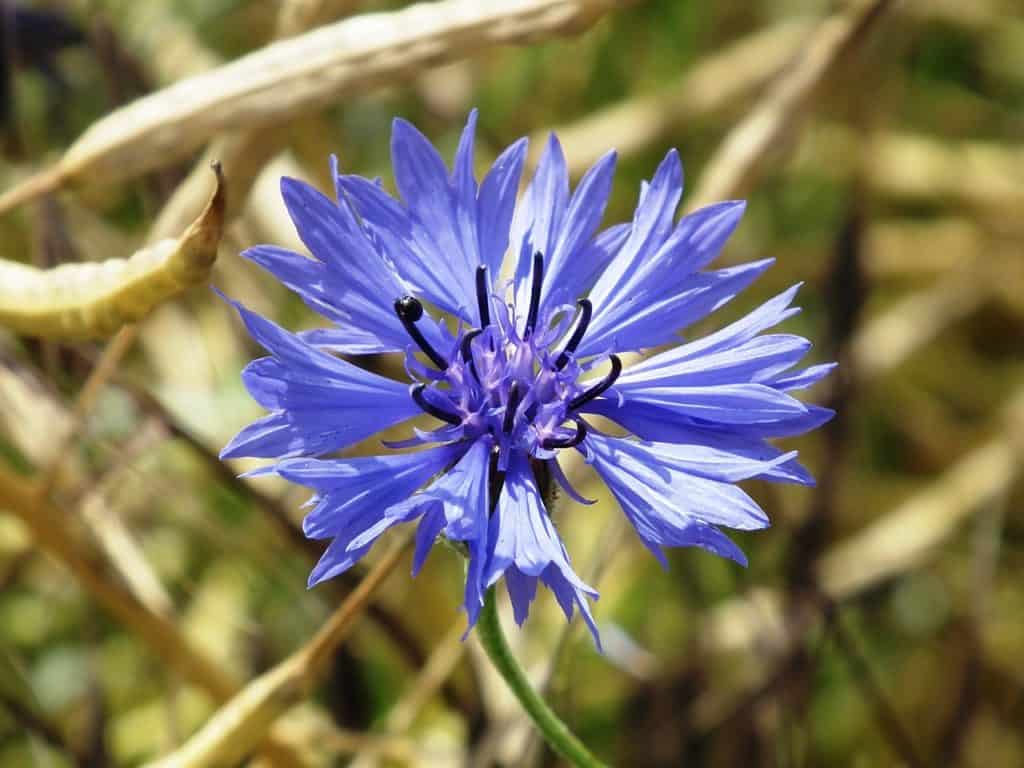
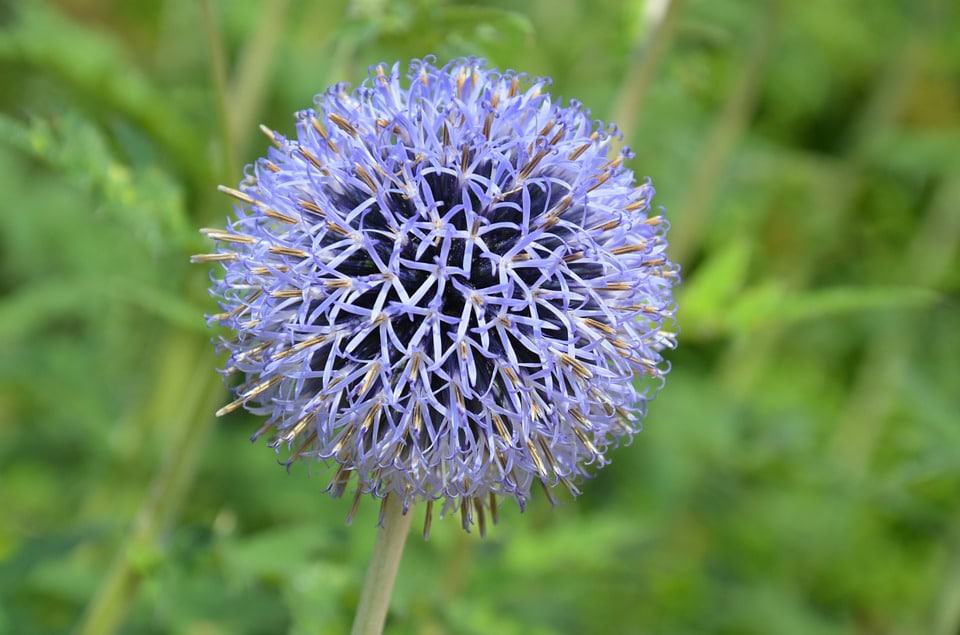
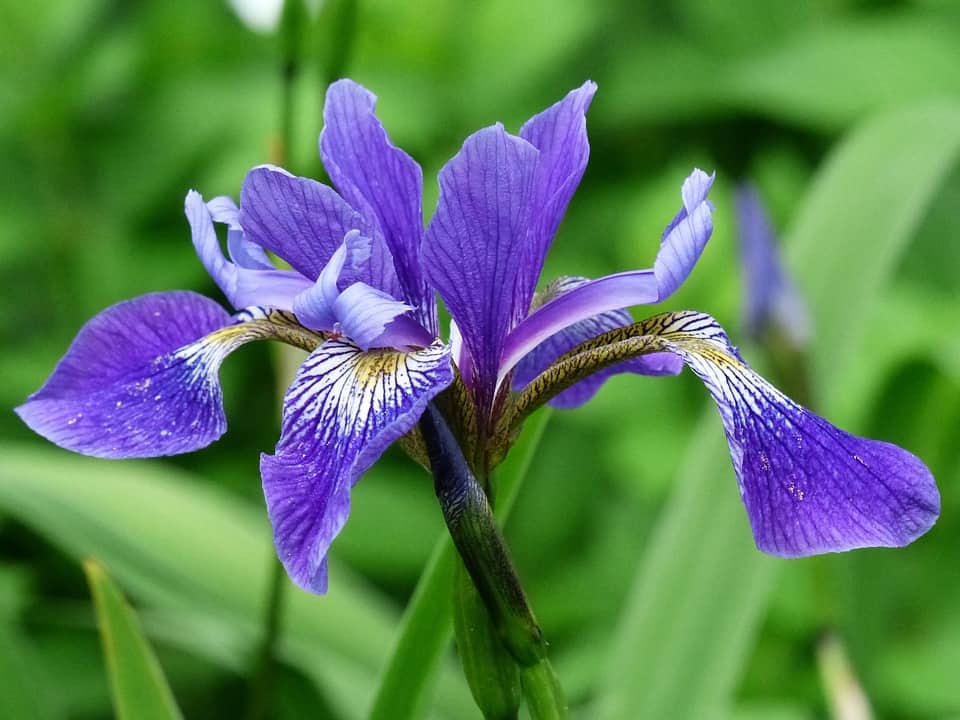
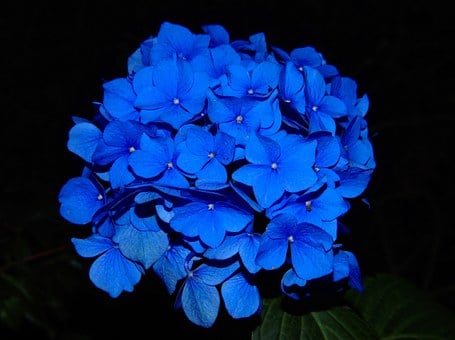
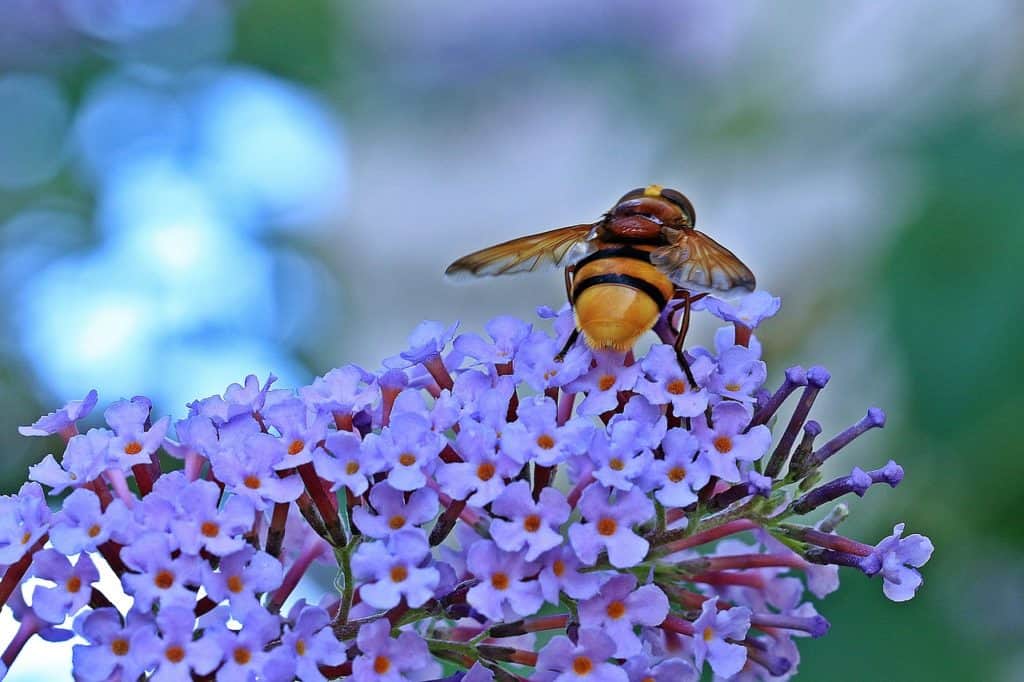
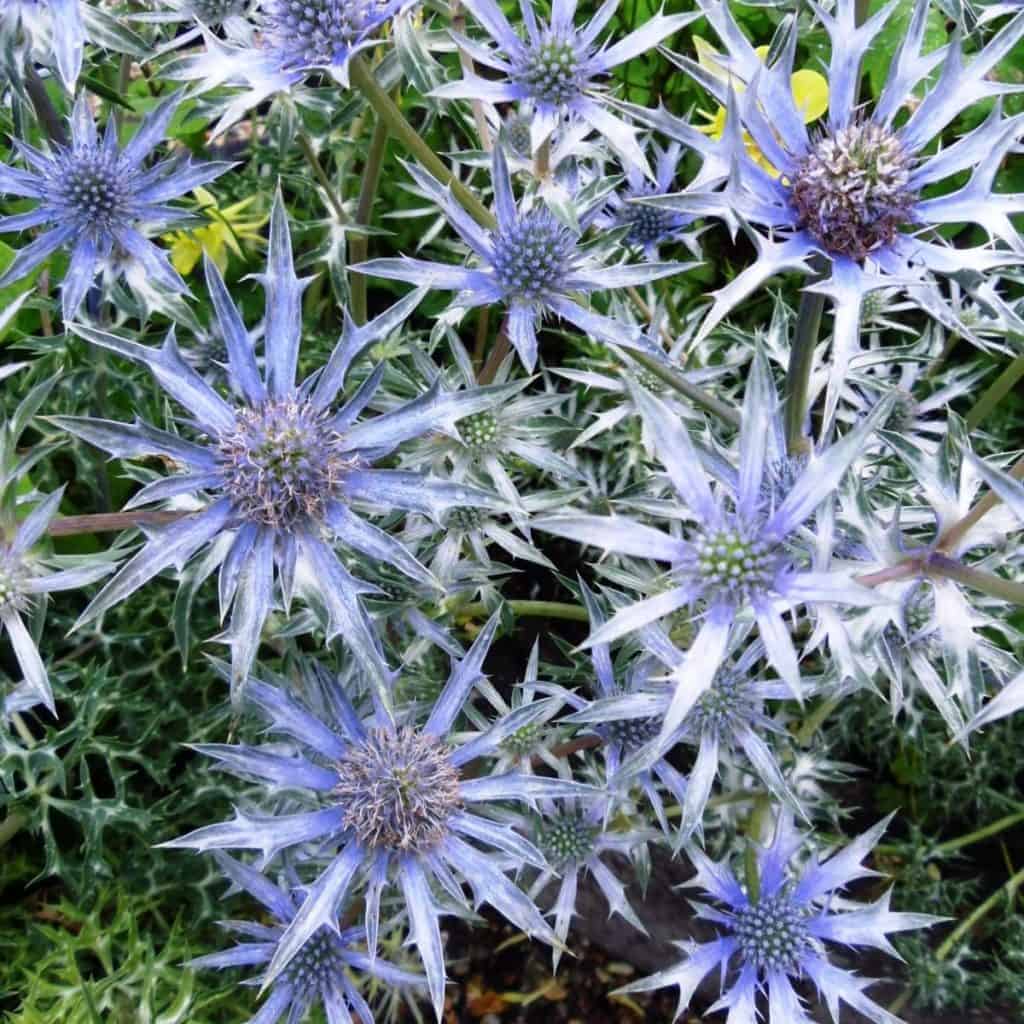

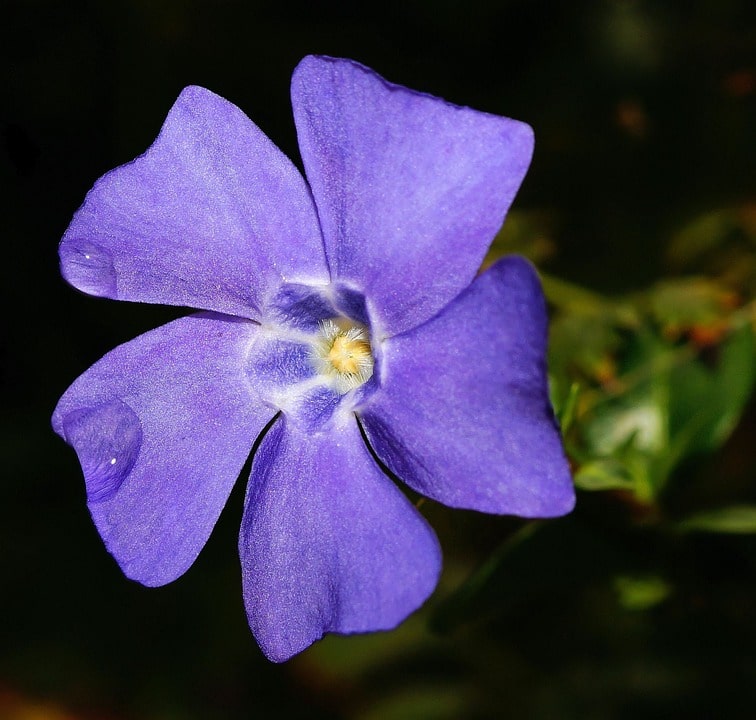
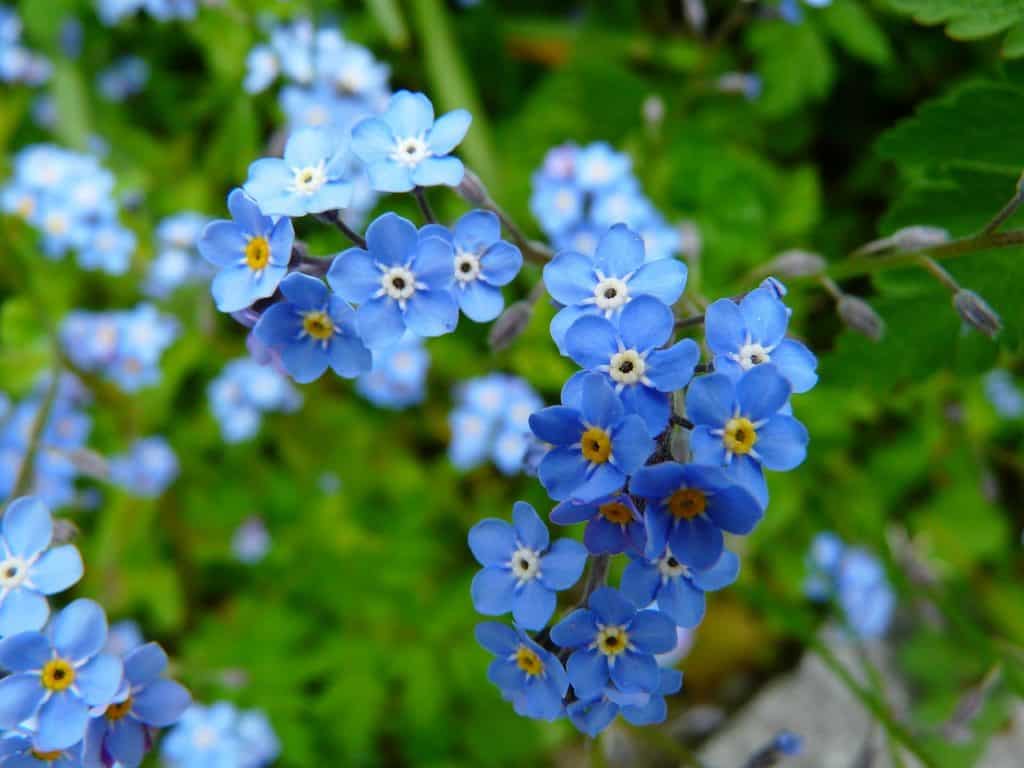
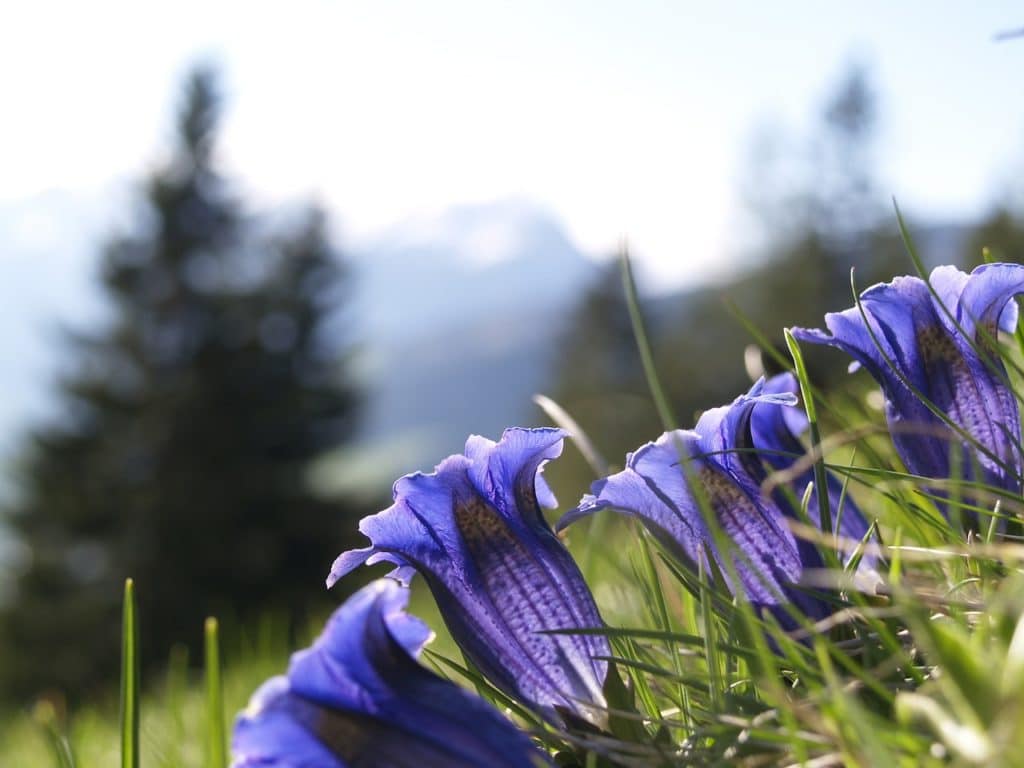
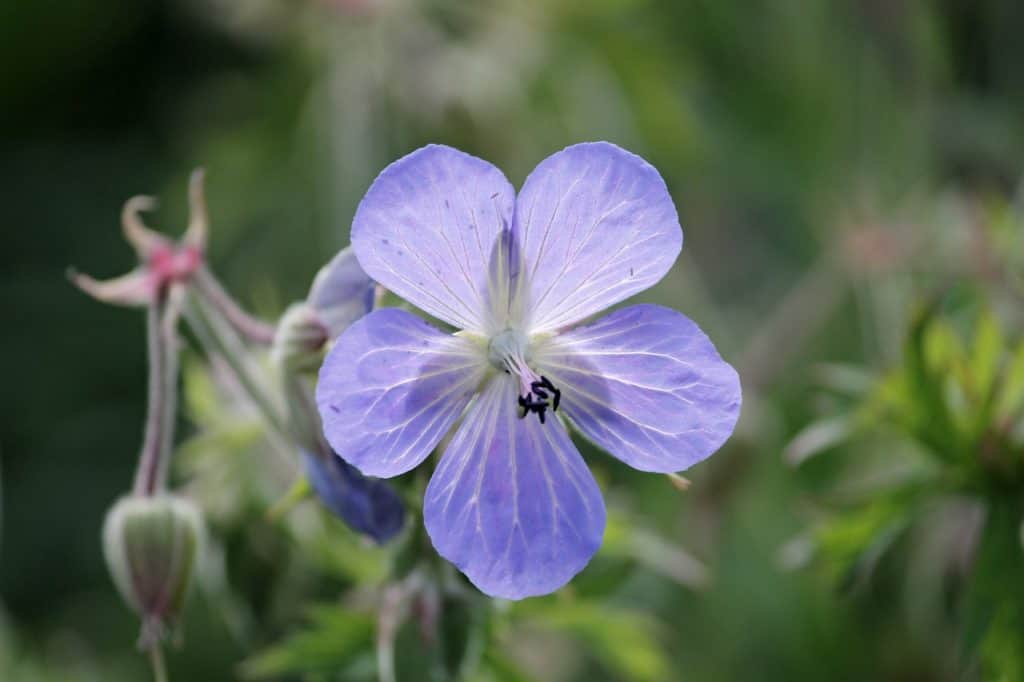
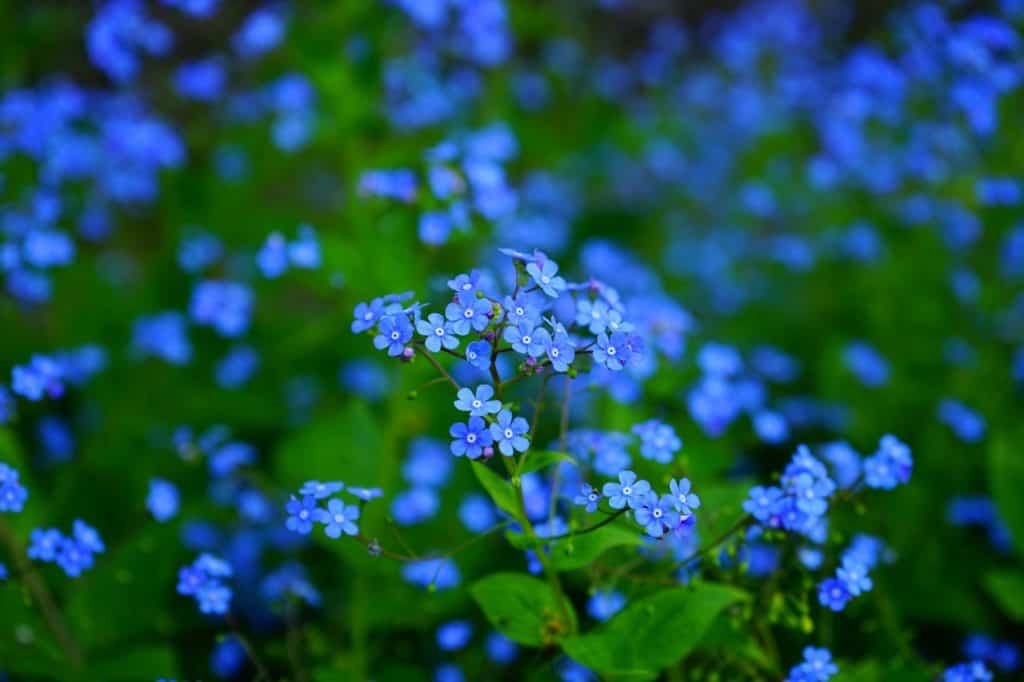

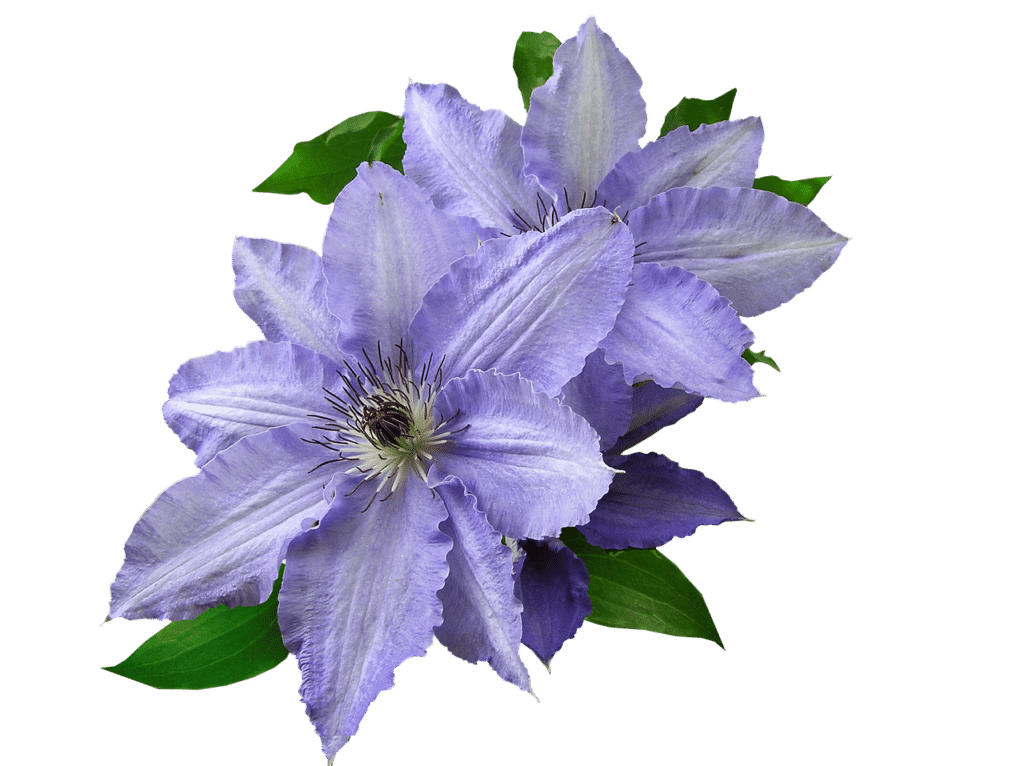
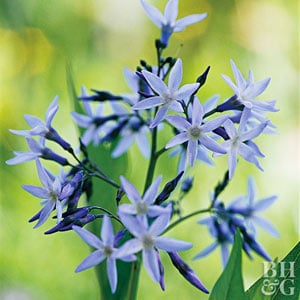
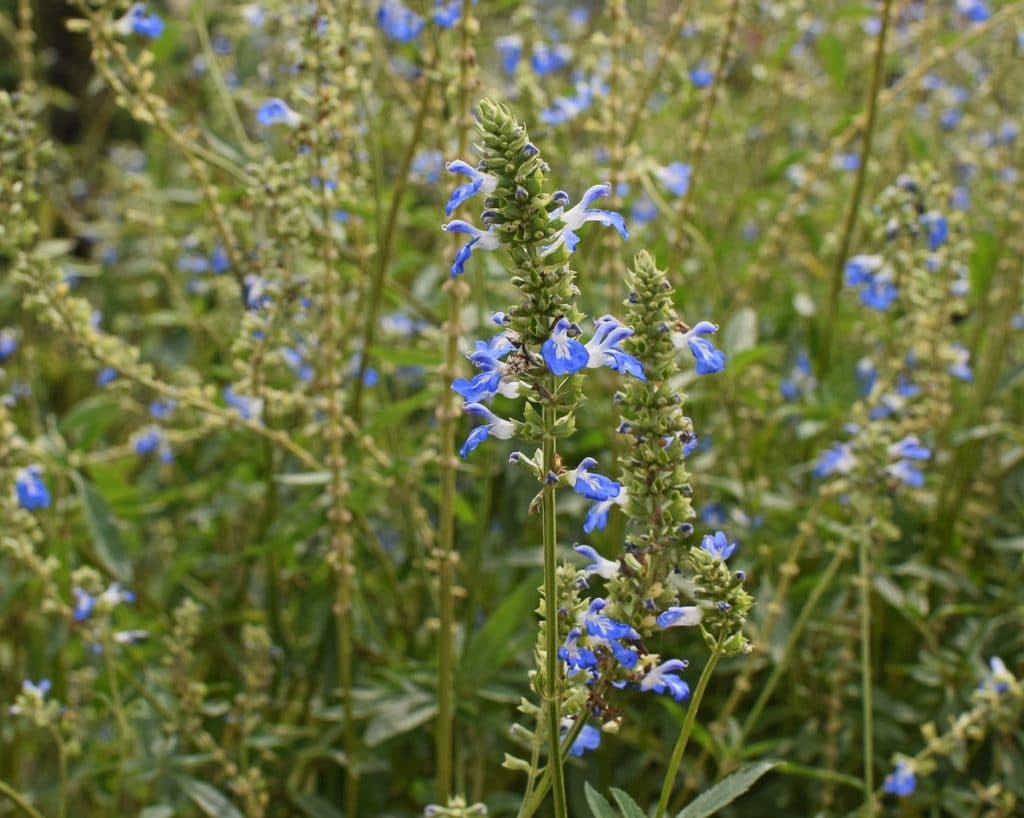
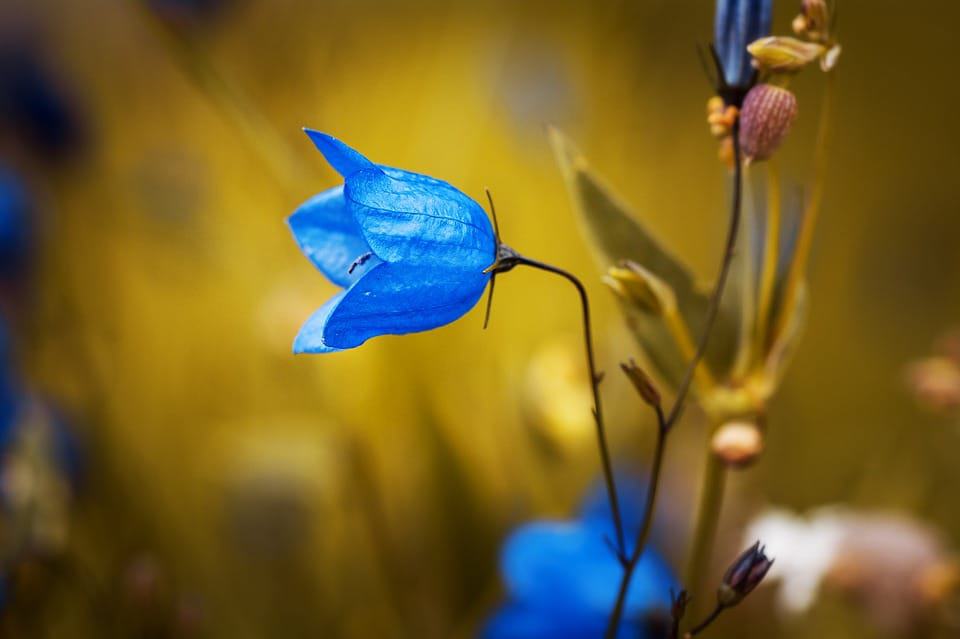
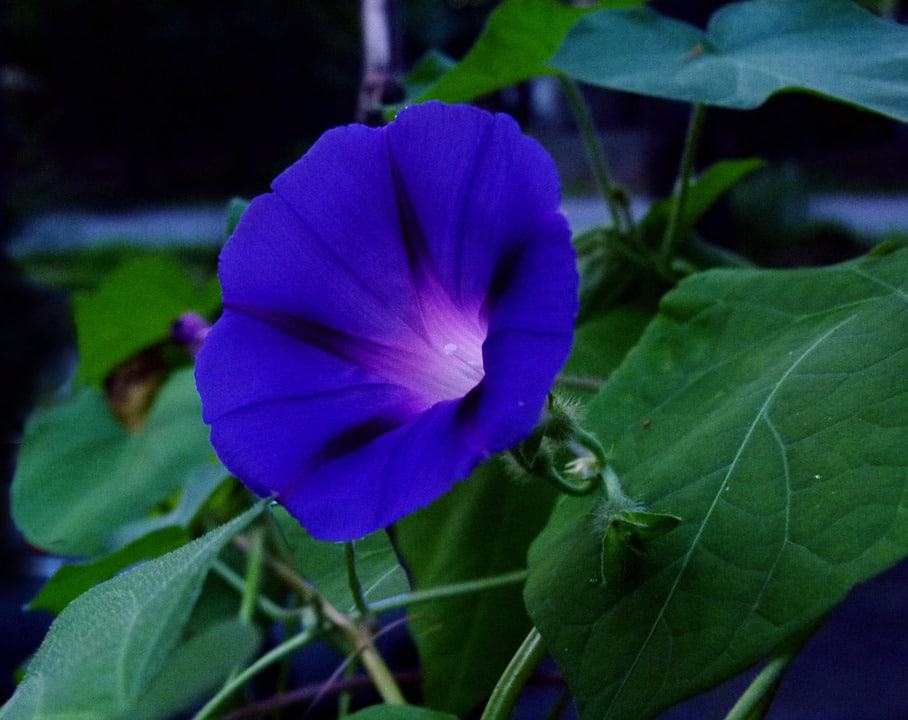
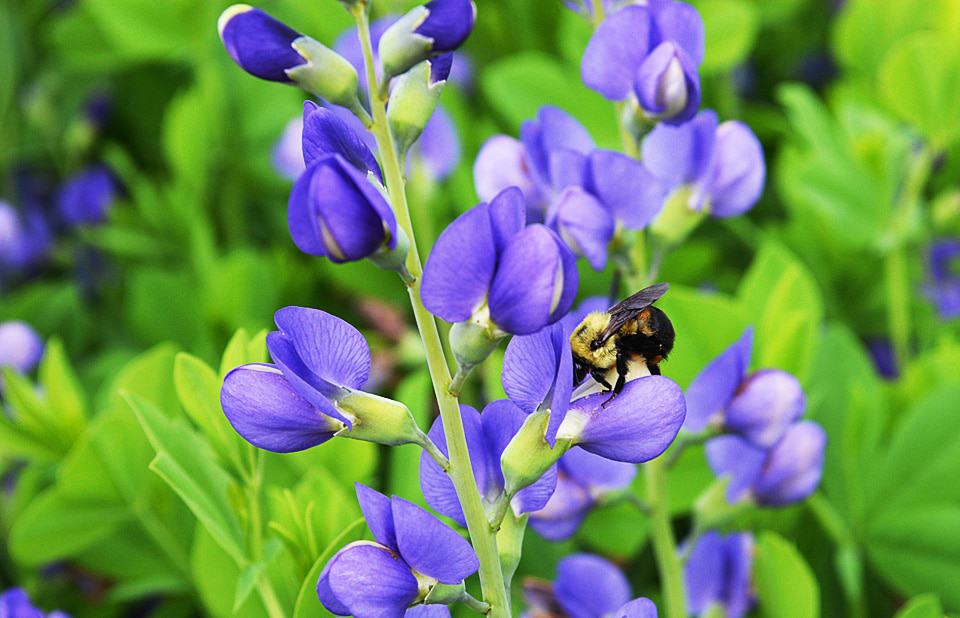
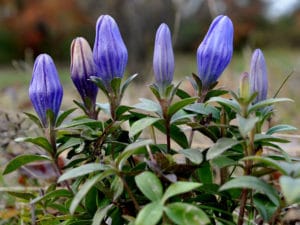
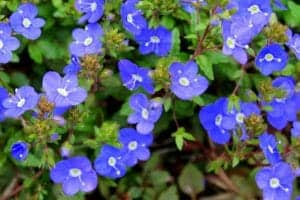
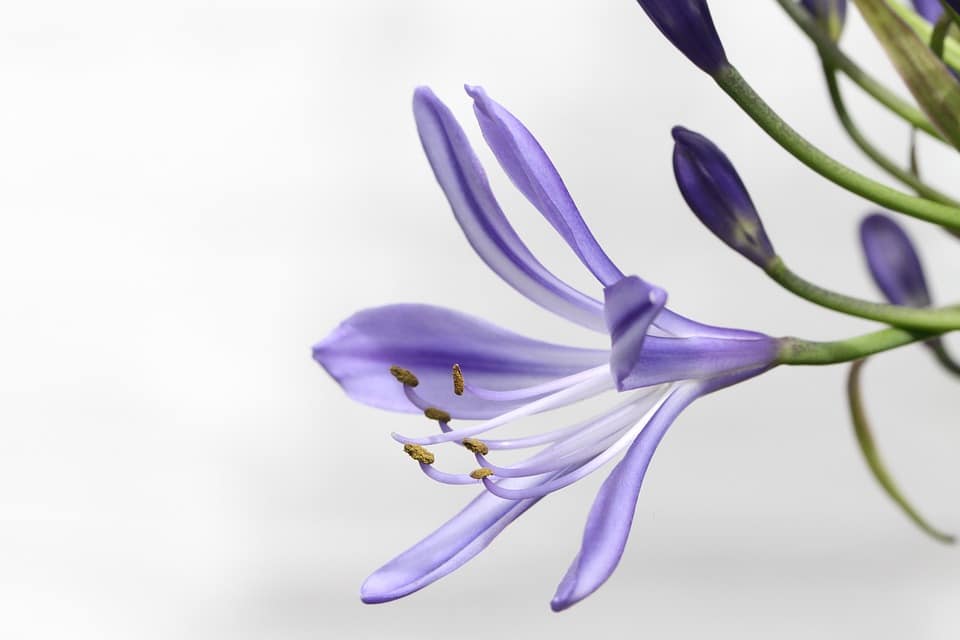
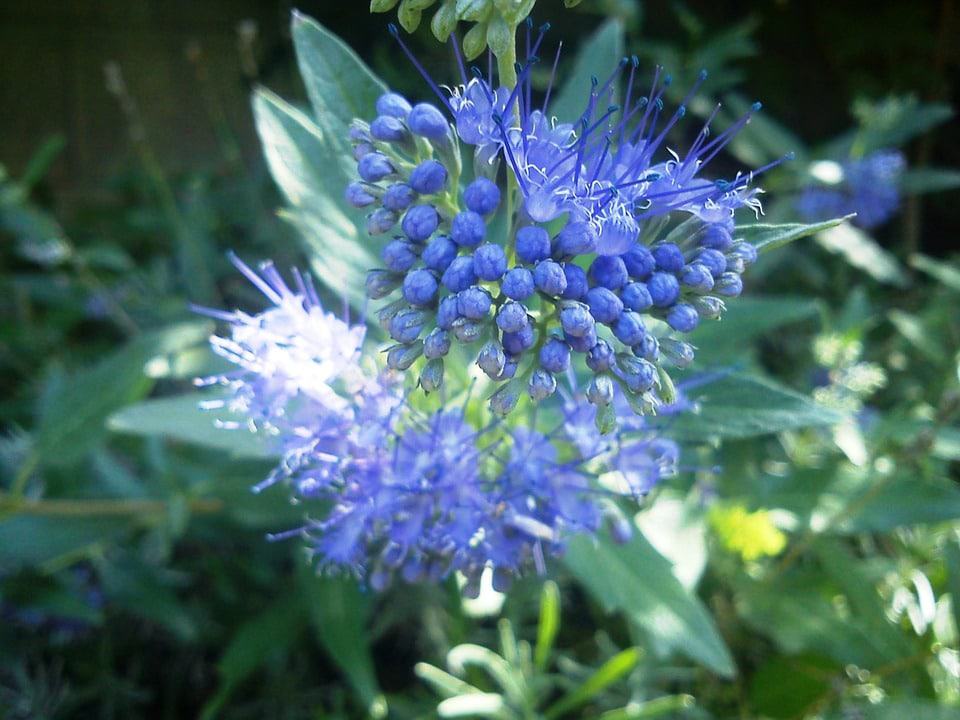
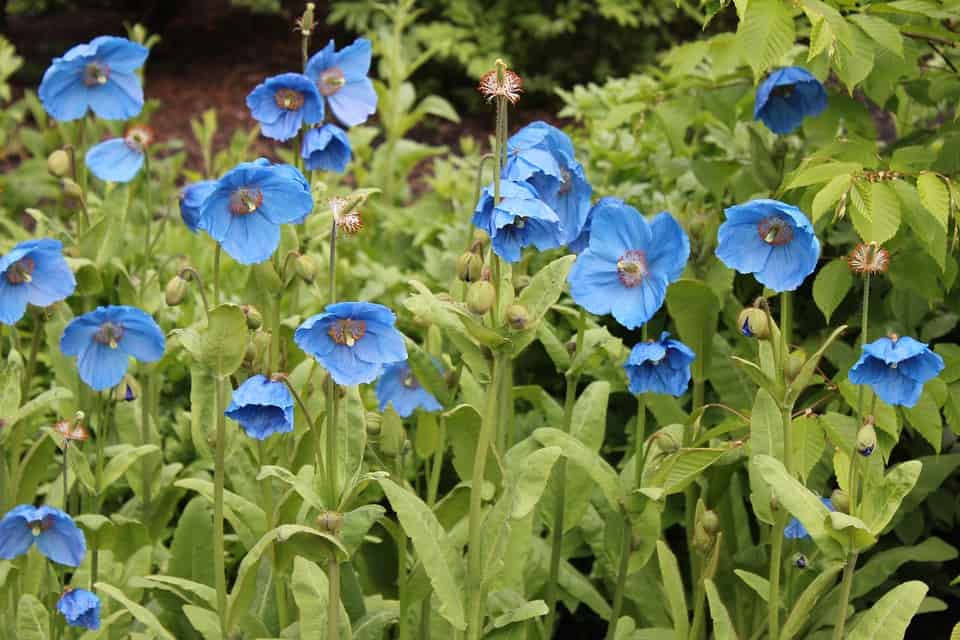
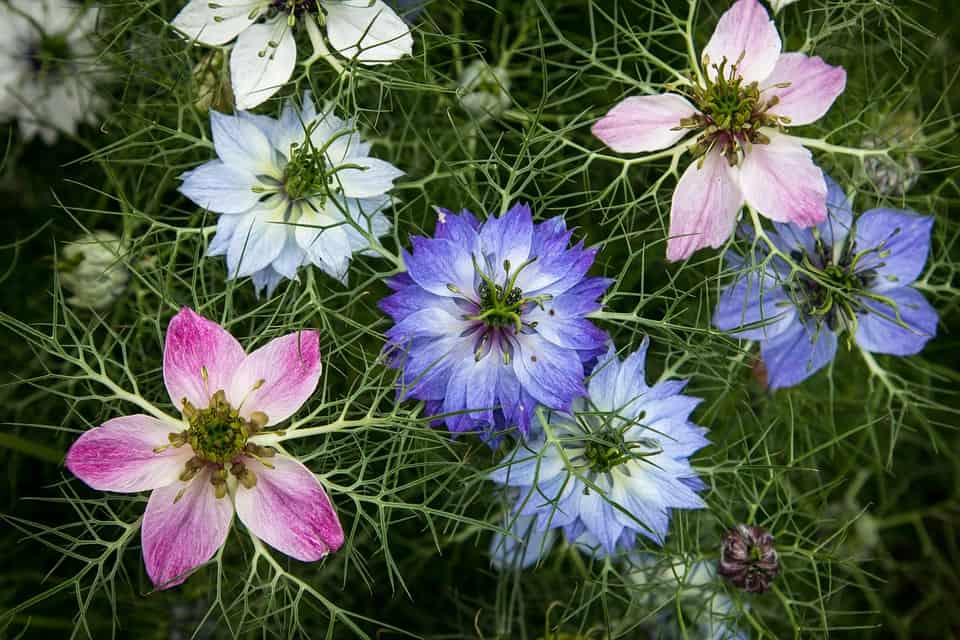
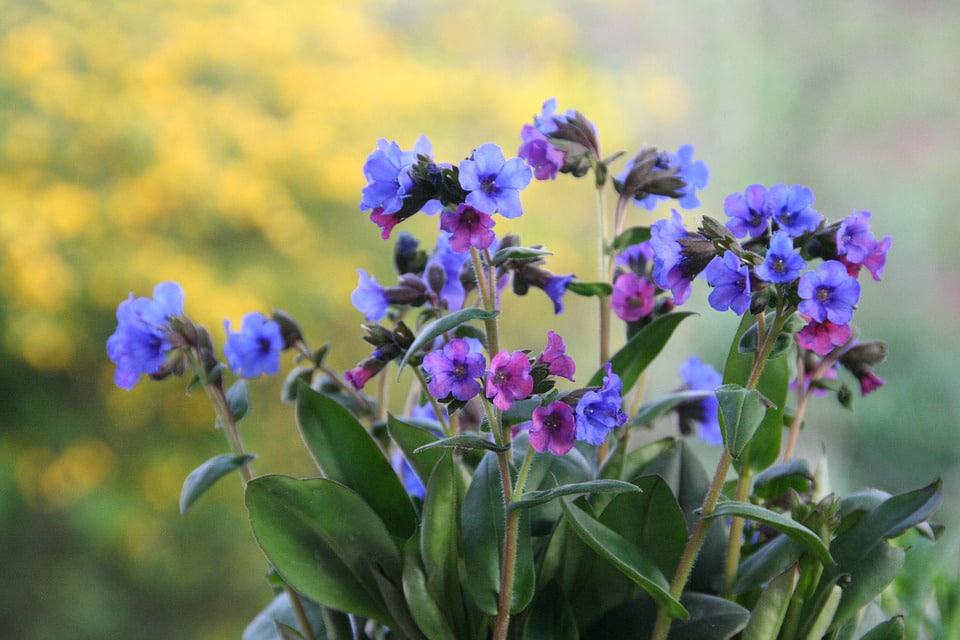
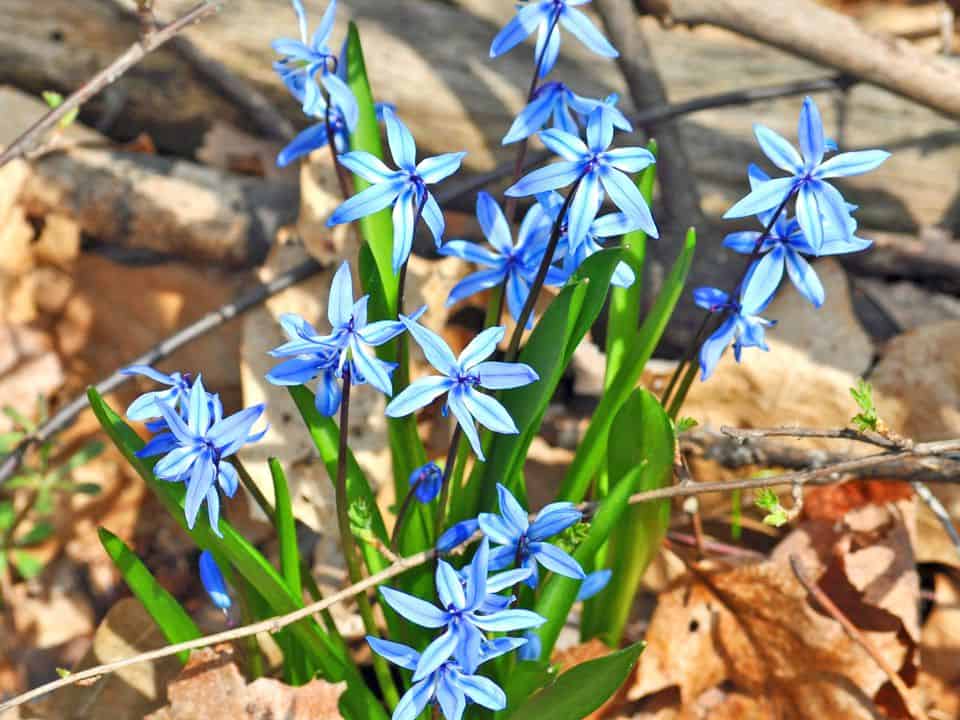
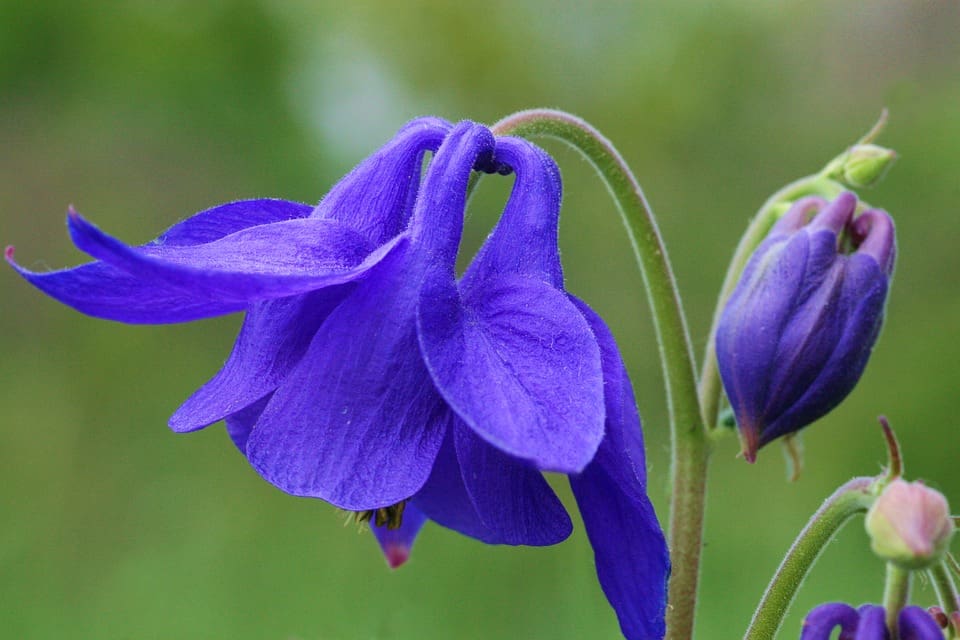
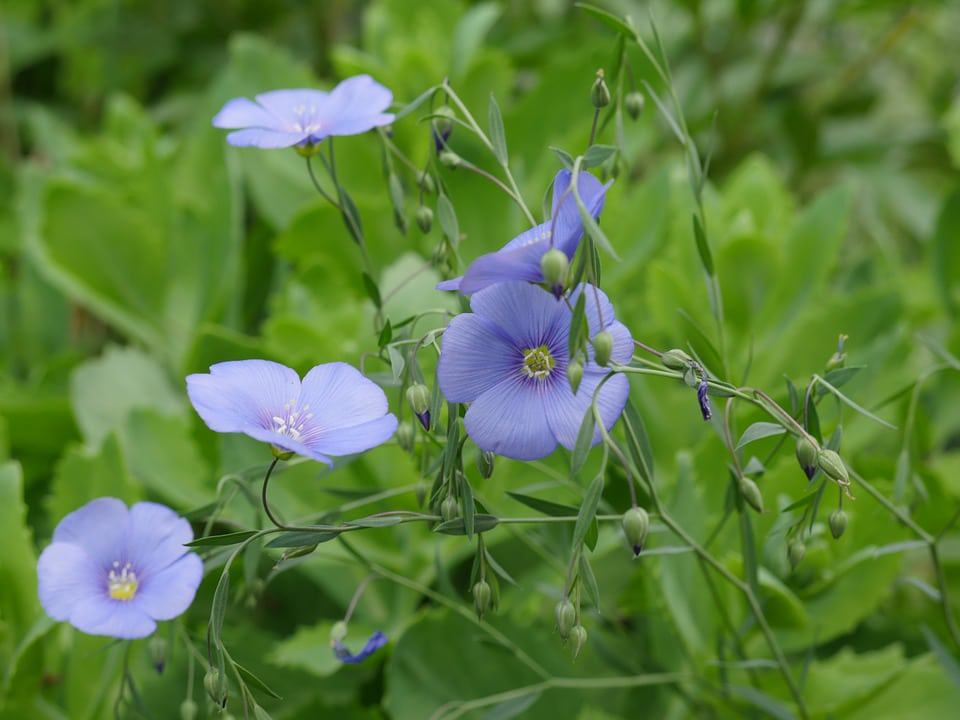
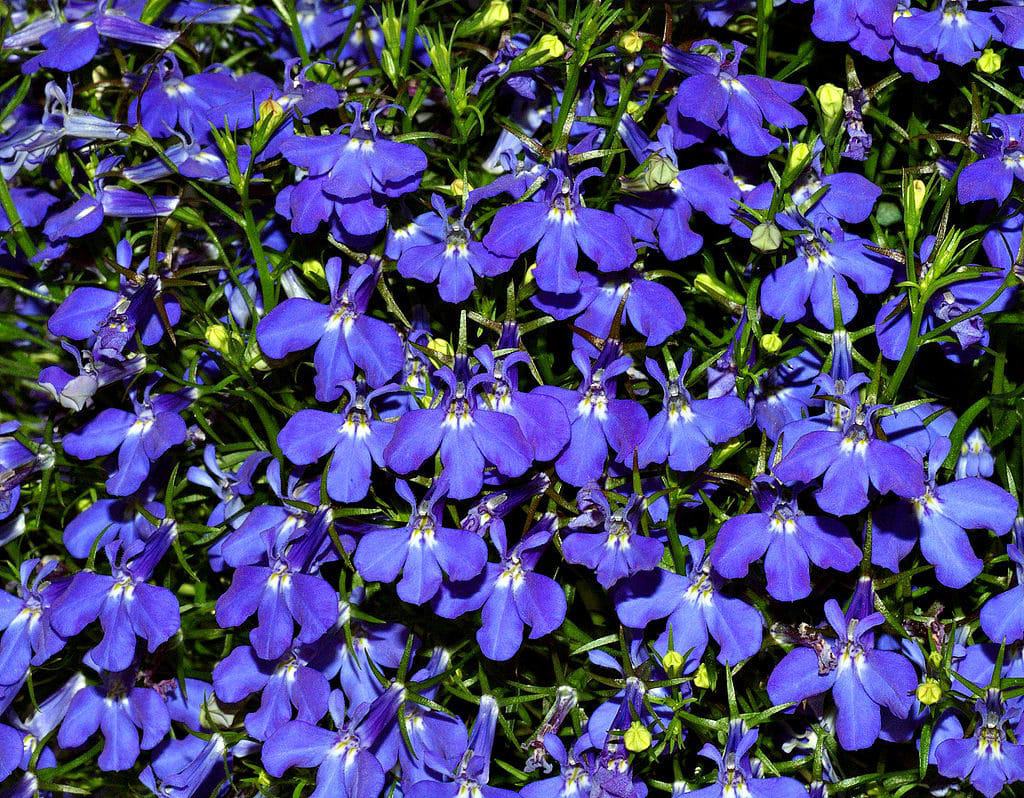
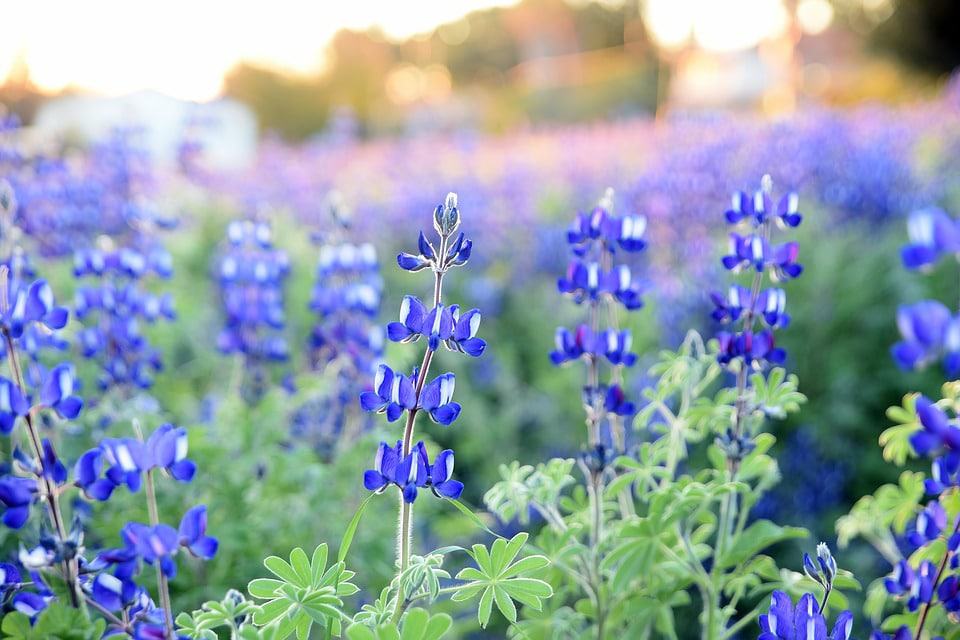
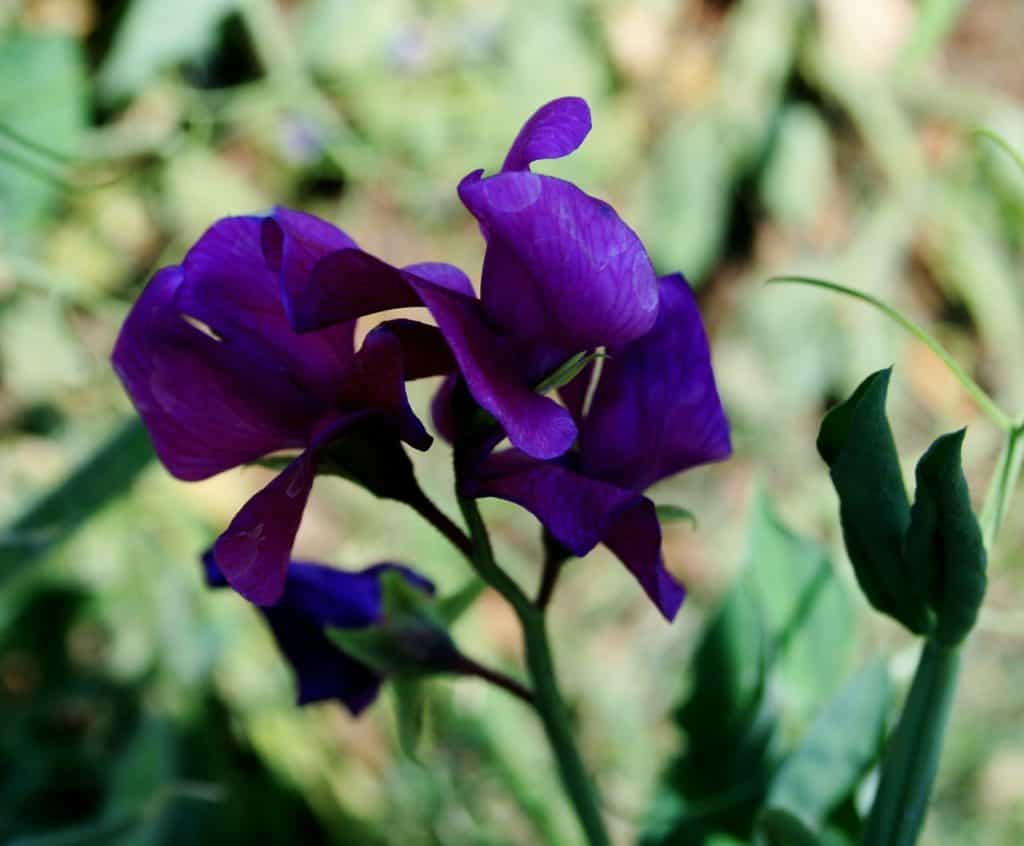
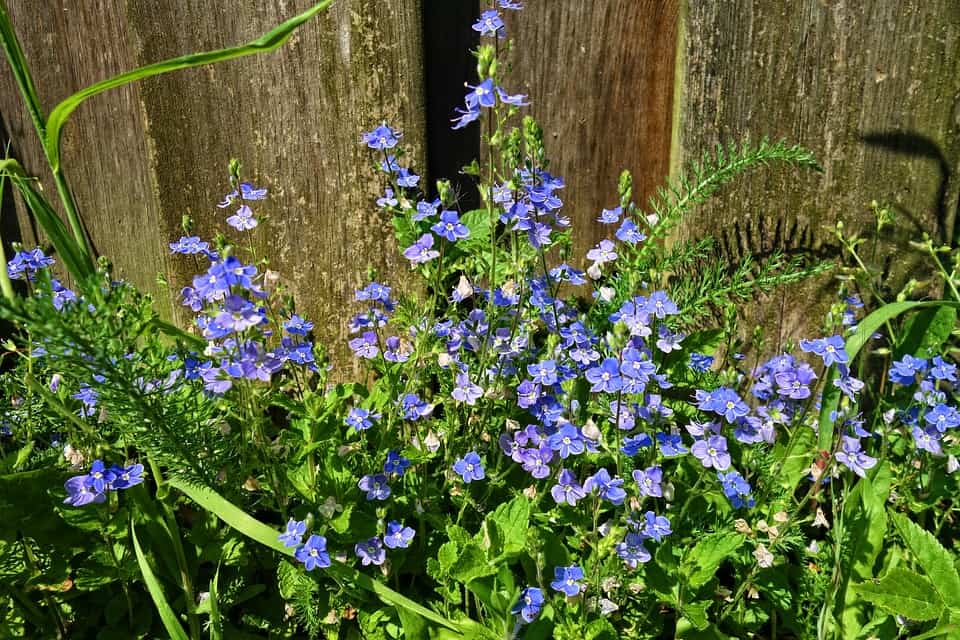
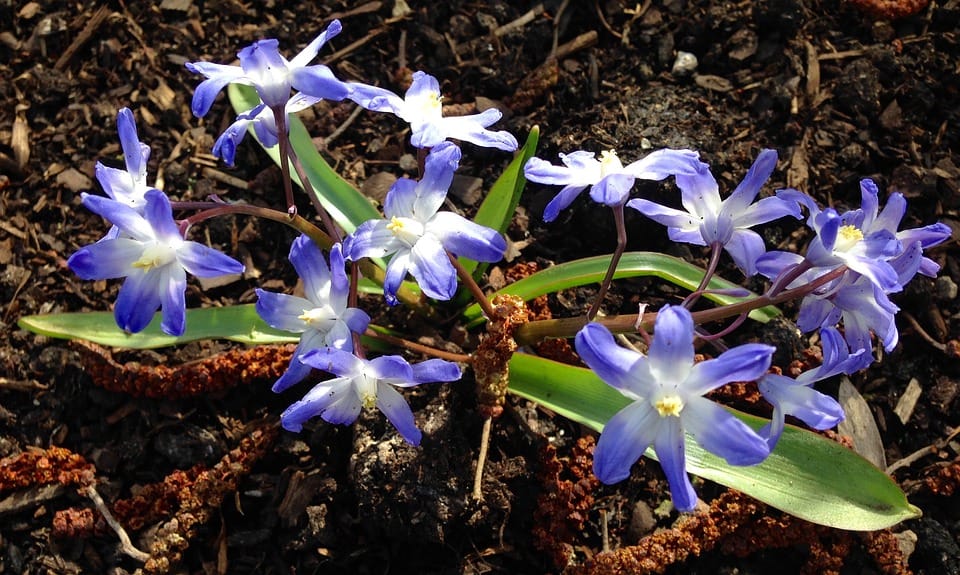
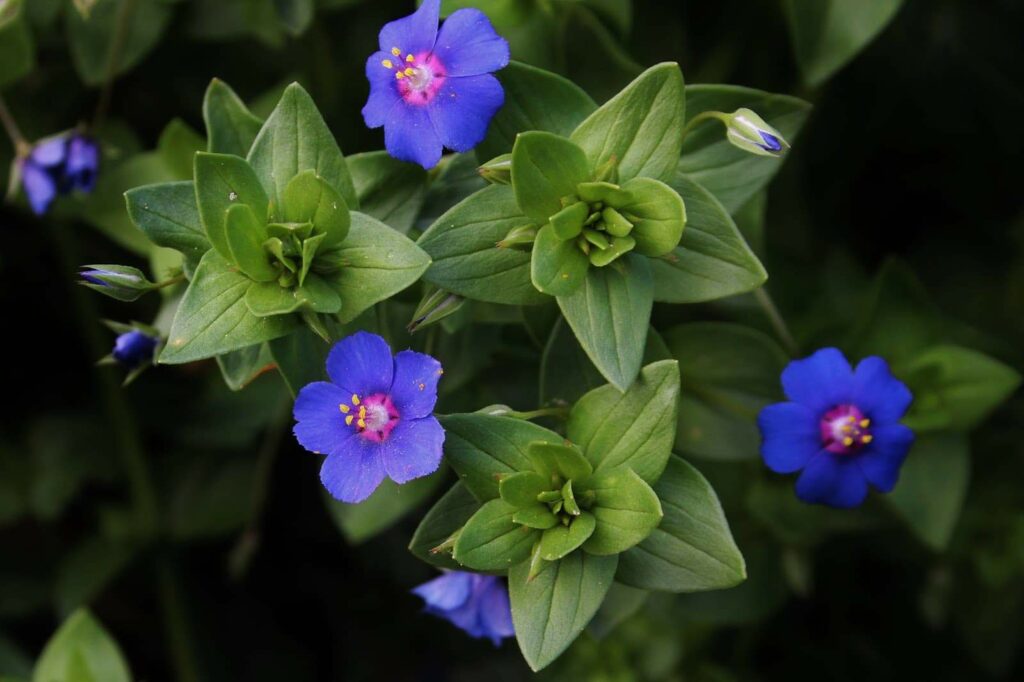
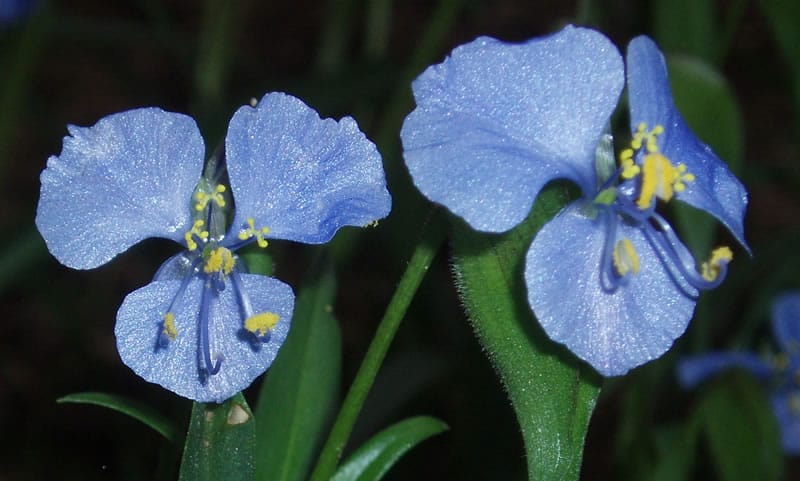
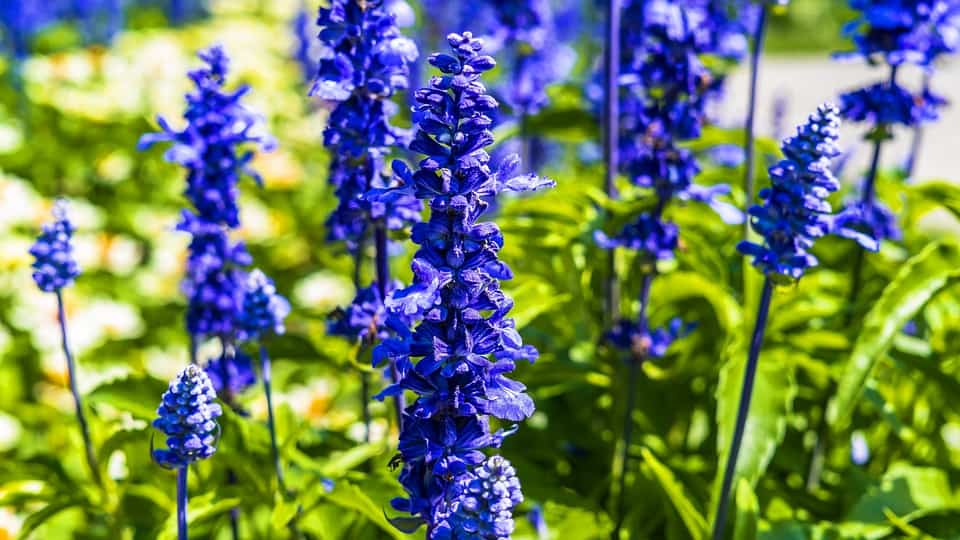
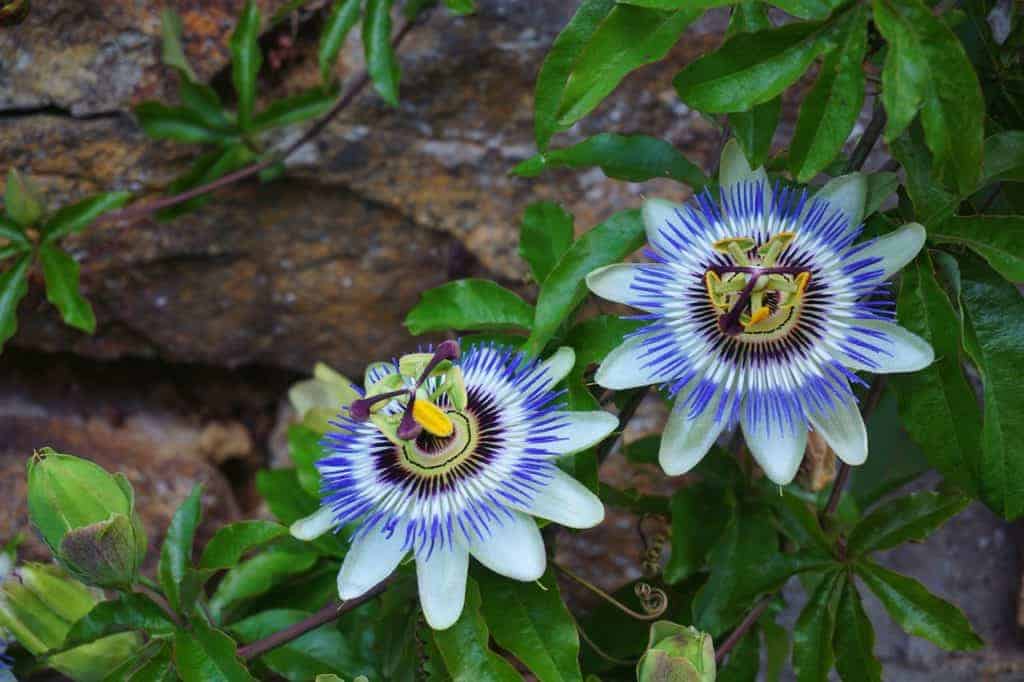
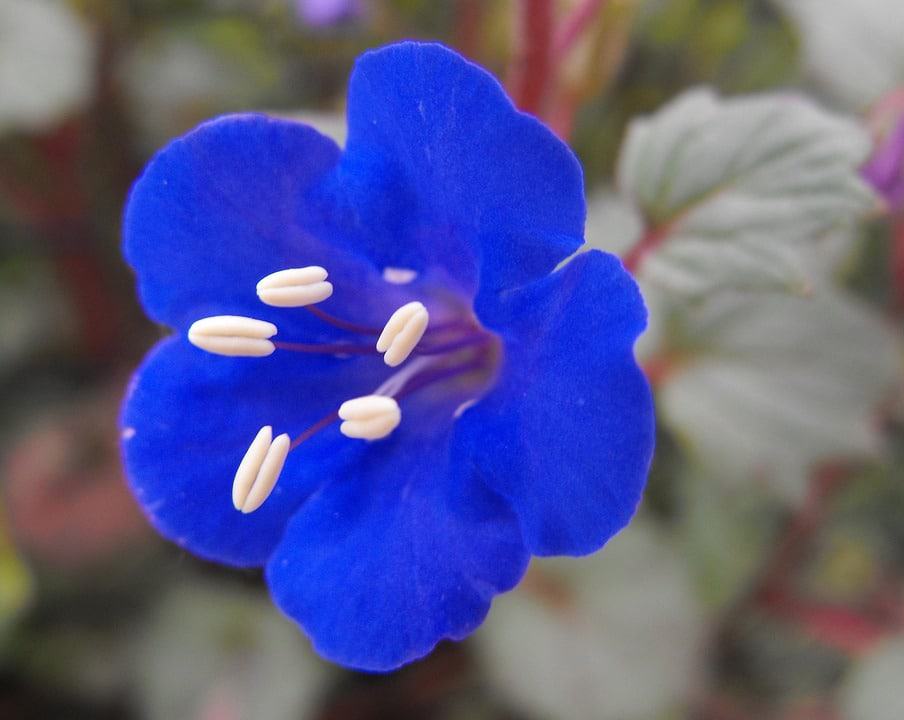
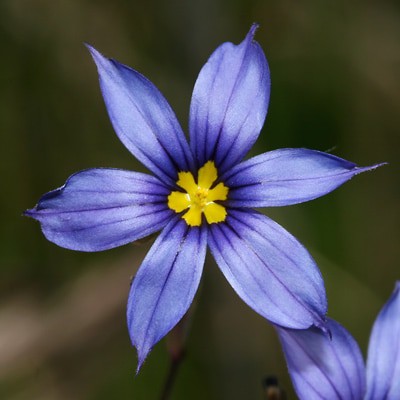
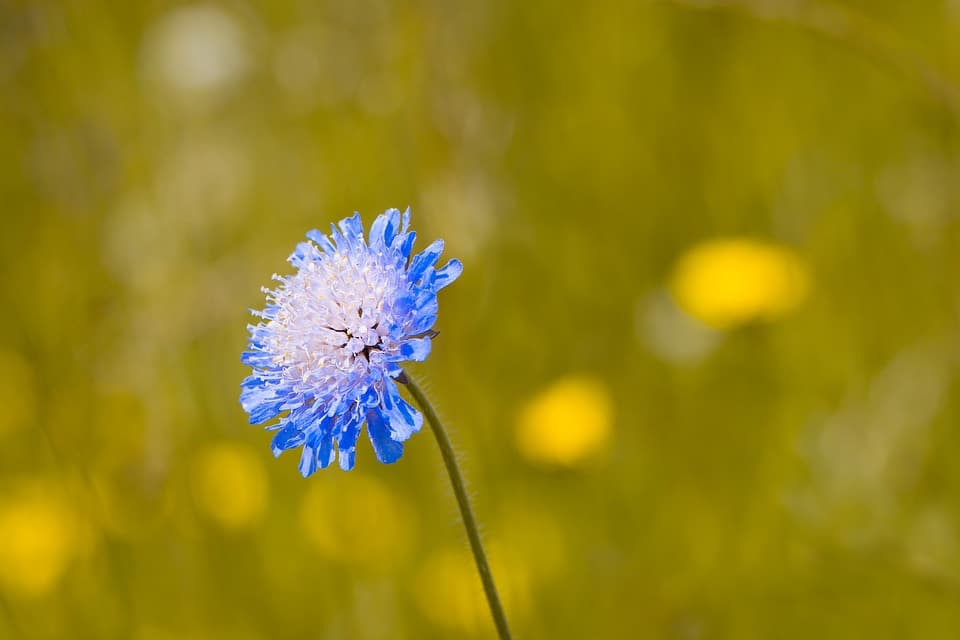
0 Response to "Cornflowers Sunflowers Pink Purple Blue Bright Pink Wildflowers"
Postar um comentário